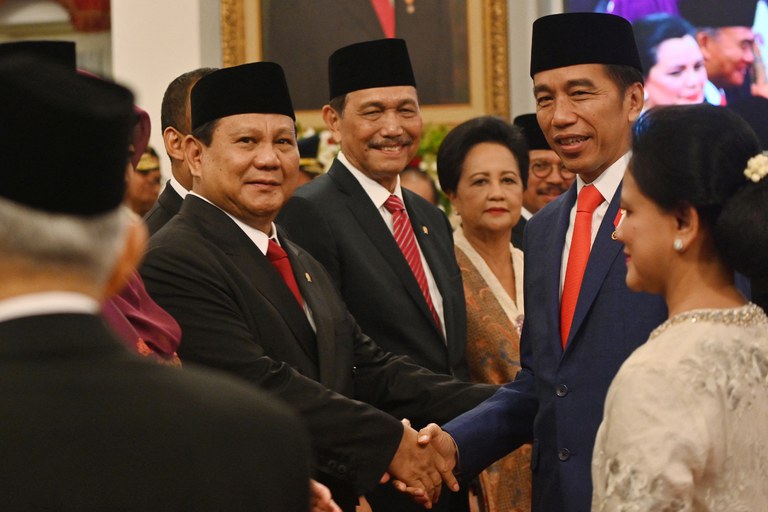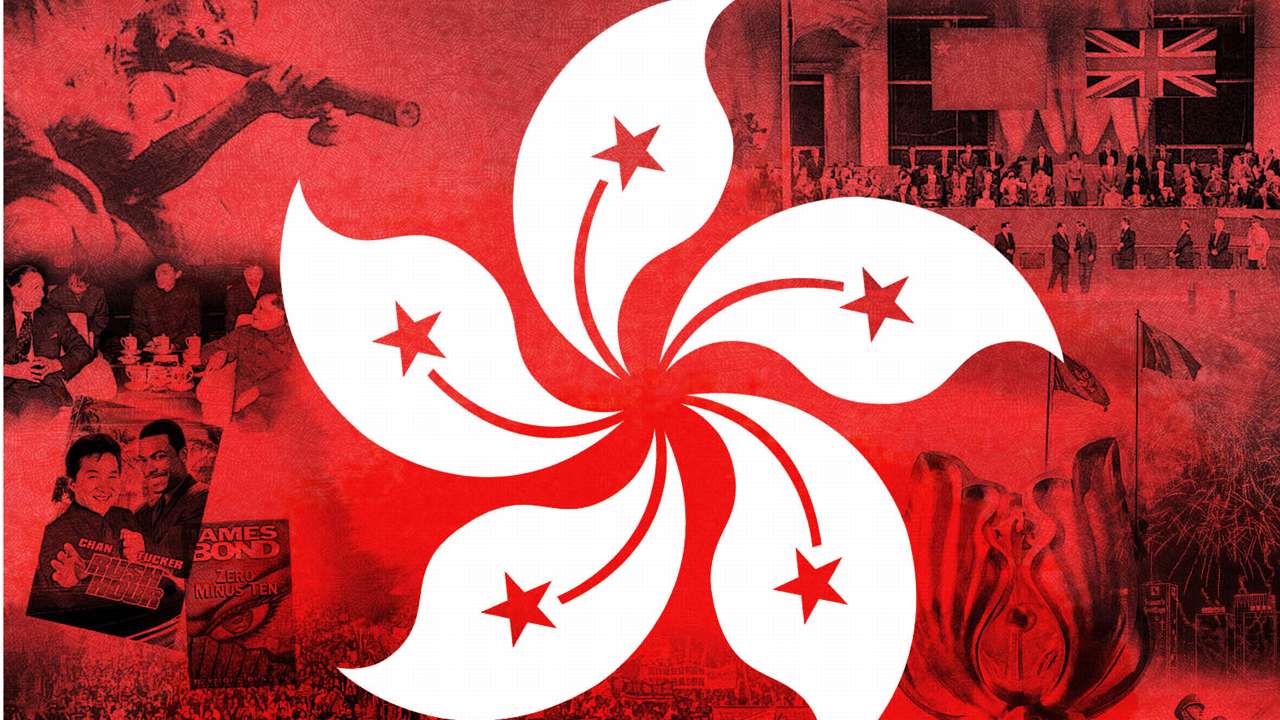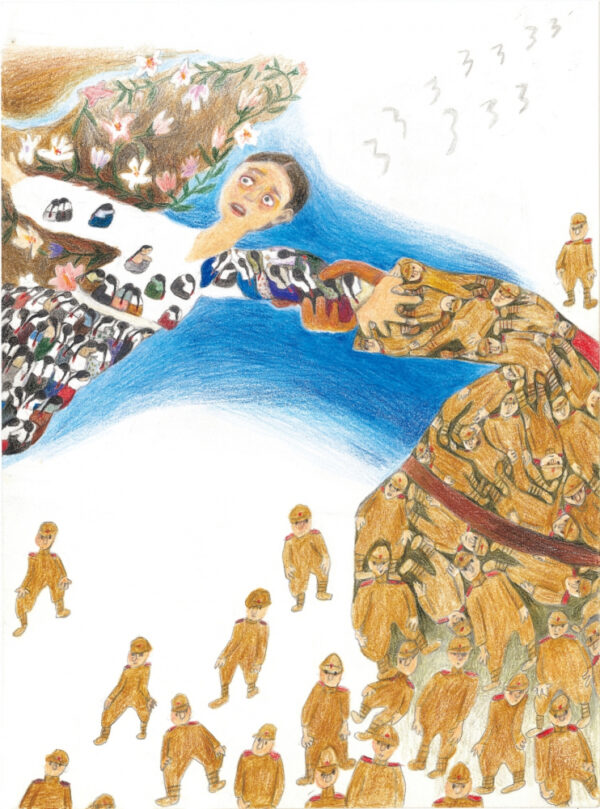The recent inauguration of Prabowo Subianto as Indonesia’s president has sparked both a wave of optimism and unease, particularly revolving around the concern that the country might return to an authoritarian military grip that is reminiscent of the Suharto’s New Order. While the militaristic leadership style remains up for debate, Prabowo’s endorsement of the local capitalist class could mark a notable economic shift. For decades, the country has been dominated by politically connected Chinese-Indonesian business elites, benefiting from historical segregation and state-backed favouritism under his late father-in-law.
In his first 100 days in office, the president has actively promoted several prominent pribumi (indigenous) entrepreneurs, such as Andi Syamsudin “Isam”, Arsjad Rasjid, and Anindya Bakrie. Some have even received favourable concessions, including a 2.3 million hectares food estate in Papua that is set to be the new administration’s greatest project of fostering energy and food security. This move has been a new staggering, especially as past presidents and political actors have heavily relied on the economic resources of the entrenched ethnically Indonesian-Chinese business tycoons[1].
I argue that by favouring local entrepreneurs in state projects and resource access, Prabowo’s administration could accelerate the creation of an Indonesian “local capitalist class” which could potentially address long-standing racialized economic inequality. However, this shift also poses a fundamental question: could this be considered a genuine effort to diversify Indonesia’s economic landscape, or merely a realignment of elite patronage?
Historical Segregation: From The Dutch to the New Order Regimes
Looking back at the history pages, the economic segregation between the pribumi class and the ethnically Chinese-Indonesian has dated back for centuries. The Dutch colonial administration systematically excluded indigenous Indonesians (pribumi) from major commercial affairs, appointing Chinese-Indonesians as economic middlemen[2]. This division created deep-rooted disparities, preventing the indigenous pribumi from accumulating capital, accessing resources or competing with their Chinese-Indonesian counterparts. Even after the country gained independence in 1945, economic segregation persisted, with military officers and political actors favouring the well-connected Chinese-Indonesians’ resource endowments to fund state projects and further their ambitions.
Fast forward to Suharto’s New Order (1966-1998), the state deliberately separated political and economic power to prevent any single group from accumulating too much influence. The political power was given to the military and the local pribumi people, mostly Javanese statesmen[3]. At the same time, economic power was concentrated in the hands of several allied Chinese-Indonesian conglomerates[4]. Suharto justified this arrangement as a means to ensure political stability while securing economic growth. He also views this policy as a way to prevent pribumi or Chinese-Indonesian actors from amassing significant resources, both politically and economically, to challenge his military rule.
One of the most notable consequences of Suharto’s policies was the rise of the “Nine Dragons” (Sembilan Naga) or the “Gang of Nine”, a group of powerful Chinese-Indonesian conglomerates closely aligned with his administration[5]. These included business giants like Indofood, BCA, Djarum, Astra, Lippo, and Mayapada[6]. Their dominance led to deep-seated economic resentment, reinforcing ethnic division in wealth accumulation. The inability of pribumi entrepreneurs to break into key industries meant that economic disparity became a racialized issue, laying the groundwork for long-term structural inequality and ethnic violence during the 1998 Reformasi period[7].
Reformation and the Slow Rise of the Local Capitalist Class
After 32 years of iron-fisted reign, students and the populace gathered to topple the smiling general from power. His fall in 1998 marked a new wind in the Indonesian business landscape, particularly as the government liberalized access to economic resources and state contracts, allowing a wider segment of society to participate in business[8]. This shift enabled the gradual emergence of the so-called “local capitalist class” in sectors once monopolized by Soeharto’s “Nine Dragons” and his families. Further decentralization and democratization of political power began to see new business figures entering industries such as mining, forestry, palm oil, fisheries, transport and energy[9]. Entrepreneurs like Roslan Roeslani, Sandiaga Uno, Erick Thorir and Arsjad Rasjid expanded their enterprises, forming formidable business groups that are somewhat on par with the predominant Sembilan Naga[10].
Despite this shift, the entrenched economic elite remained relatively influential. Many Chinese-Indonesian tycoons strategically expanded beyond their traditional monopolies, acquiring strategic industries beyond Indonesia and maintaining significant industrial leverage. Groups like Indofood, for example, acquired the $4,3 billion Pinehill Arabia Food Limited to expand their burgeoning African markets in 2020[11]. Additionally, the 7th President, Joko Widodo (2014 – 2024) continued to rely on these tycoons for financing the National Strategic Project (PSN). One of the most notable involvements was the Nine Dragons’ $1,86 billion investment in the Indonesian new capital city of Nusantara, which itself lacks foreign direct investment in expanding their physical infrastructure[12]. This deal has proven that while the reformasi era had fostered some level of economic diversification, the deep structures of Indonesia’s economy remained largely unchanged. The established conglomerates still hold significant capital, and resource access, further leveraging this endowment for a fruitful political alliance with Indonesia’s political elites.
Prabowo’s Government: Wind of Change?
Starting from October 20th last year, Prabowo’s presidency appears to mark a deliberate shift toward the promotion of pribumi entrepreneurs. Since his early political career, he has strategically cultivated relationships with ethnically non-Chinese business figures, including his brother Hashim Djojohadikusumo, and palm oil tycoon Haji Isam[13]. During a high-profile meeting with Japanese investors, Prabowo introduced these “local” business leaders to the delegation, emphasizing their growing significance in the Indonesian economy[14]. This strategic move signalled a departure from previous administrations, where Chinese-Indonesian conglomerates operated as a significant bridge and beneficiaries of foreign investment partnerships.
One of the most striking indications of this shift has been Prabowo’s legal action against Chinese-Indonesian tycoon, Aguan, over the controversial Pantai Indah Kapuk 2 (PIK) real estate project. Unlike previous presidents who protected established business elites, Prabowo swiftly intervened in PIK’s reclamation controversy, ordering the security forces and his cabinet to engage in a corruption eradication campaign tied to this project[15]. This aggressive stance suggests a broader effort to curb the influence of the old economic elite and create a new space for his new business allies and local capitalist class.
Additionally, Prabowo’s administration has delegated substantial state projects to several of his local capitalist allies, such as appointing Haji Isam of clearing and managing a 2 million-hectare food estate in Papua[16]. His populist economic policies, including the highly publicized free lunch program, have also integrated more than 1,900 local cooperatives[17]. By prioritizing the local capitalist class in state-backed initiatives, Prabowo is effectively shifting Indonesia’s capitalist landscape toward a more localized economic elite.
While this shift may seem promising, questions remain regarding its long-term impact. If Prabowo’s administration continues to allocate state projects and grant resource access to a select group of local entrepreneurs without fostering broader competition, it risks creating a new form of oligarchy[18]. The danger of replicating past patronage politics remains at large, as business groups that are closely aligned with the administration could receive preferential treatment in ways that limit market competition. Furthermore, the success of these local capitalist classes will depend on whether they can sustain their businesses independently of preferential state contracts and political backing.
If successful, Prabowo’s policies could rebalance economic power by empowering the local capitalist class and reducing ethnic-based economic inequality. A stronger indigenous business class could contribute to a more equitable economic structure, reducing Indonesia’s historical over-reliance on the Chinese-Indonesian conglomerate class. However, there remains a risk that the new rising elite class will mirror past power structures, replacing one dominant economic class with another. If Prabowo’s economic realignment continues to revolve around political favouritism over genuine economic liberalization, Indonesia may find itself trapped in a vicious cycle of shifting oligarchies rather than achieving true economic democratization.
Farryzki is a third-year BIM Scholar at the University of Toronto, majoring in International Relations, Public Policy and Urban Studies. He has always been passionate about political economy, equitable urban development and environmental justice. Prior to Synergy, Farryzki has an extensive research experience through involvement in Munk Undergraduate Research Symposium and internship at Indonesia’s VP Office, specializing in development economics and regional governance policies. As a lead editor, he aims to facilitate a tight-knit community of scholars to develop a rich perspective and ideas across Southeast Asia.
Bibliography
- Blussé, “The Role of Indonesian Chinese in Shaping Modern Indonesian Life.” ↑
- Yen-Ling, “Spaces of Exclusion, Walls of Intimacy.” ↑
- Said, “Suharto’s Armed Forces.” ↑
- Suryadinata, “Indonesian Policies toward the Chinese Minority under the New Order.” ↑
- Chong, Chinese Indonesians in Post-Suharto Indonesia. ↑
- Kumparan, “Siapa Saja 9 Naga Penguasa Ekonomi Indonesia?” ↑
- Yotes and Croucher, “An Integrated Threat Theory Analysis of Latent Tension between Native Indonesians and Chinese Indonesians.” ↑
- Cornish, “The Politics of Economic Reform in Contemporary Indonesia | East Asia Forum.” ↑
- Carnegie, “Democratization and Decentralization in Post-Soeharto Indonesia.” ↑
- Eslita, “Sandiaga Uno Takes Saratoga Capital Public, A First In Indonesia.” ↑
- Prasidya, “Investors Wary of Indofood CBP’s Acquisition of Noodle Maker Pinehill – Business.” ↑
- Salim, “Indonesia’s ‘clean, Green, High-Tech’ New Capital City Is Proving Hard to Sell to Private Investors around the World.” ↑
- Tenggara Strategics, “Analysis.” ↑
- Fajri, “Saat Prabowo Kenalkan Haji Isam sebagai Pengusaha Terkemuka ke Delegasi Jepang | tempo.co.” ↑
- Guardiola, “Indonesian Navy Dismantles Mysterious Bamboo Barriers in Tangerang Waters on Prabowo’s Order.” ↑
- Afifa, “The Problem with Our Food Estate Program.” ↑
- Firdaus, “Over 1,900 Cooperatives Roped in as Suppliers for Meals Program.” ↑
- Hermawan, “The Biggest Threat to Indonesia’s Democracy?” ↑








